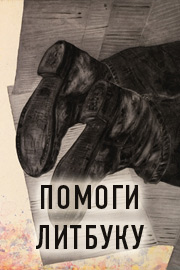This year marks the 220'th anniversary of the great Russian Orthodox philosopher, theologian, and poet Alexey Khomyakov's birth. He was born in Moscow on the 1st of May 1804 (o. s.), the day when the memory of the prophet Jeremiah is celebrated. As a Slavophile, he insisted that Russia should follow its own path of development based on the pre-Petrine (pre-Peter the Great) culture inspired by the Eastern Orthodox church. He strove for Slavic brotherhood based on the ideals of Orthodoxy (‘духовное единство под знаком истинной веры’), which can be achieved if Slavic peoples overcome the tendency towards ‘germanisation’. At the same time, he urged for the ‘sobornost’ of all peoples of the world. This term, which can roughly be translated as ‘togetherness’ or ‘symphony’, implies that a person can best achieve spiritual maturity in an organic community that respects the liberty of its members and that true progress depends not on competition (as in the West) but on cooperation, as in the Russian ‘obshchina’, a village commune. The literary activity of Khomyakov started with the translation of Tacitus’s Germania and Horace’s Pareus deorum cultor et infrequens, which he translated twice, in different meters. His poetic heritage remains largely untranslated into English. His friend and correspondent from Oxford William Palmer translated three of his poems into English, including To Children, a poignant meditation on the death of the poet’s first two sons. In 1847, Khomyakov visited Palmer in Oxford. While doing his dissertation at Oxford, Dmitry Shatalov translated another three poems by Alexey Khomyakov. He would like to thank Victoria Donovan, who is now a Senior Lecturer in Russian at the University of St Andrews, for her help with polishing the following translations.
Заря
Тебя меж нощию и днем
Поставил Бог, как вечную границу,
Тебя облек он пурпурным огнем,
Тебе он дал в сопутницы денницу.
Когда на небе голубом
Ты светишь, тихо догорая, —
Я мыслю, на тебя взирая:
Заря! Тебе подобны мы -
Смешенье пламени и хлада,
Смешение небес и ада,
Слияние лучей и тьмы.
(1825)
Dawn
A timeless borderline you are
That God twixt night and day put down;
He clothed you in a scarlet gown,
He gave you a companion in the morning star.
When in the heavenly azure
You give off light and calmly fade,
I look at you and ruminate:
We are like you, the Dawn of day—
A mix of blazing flames and cold,
Of heaven and the underworld,
A blend of light and shadows grey.
Молодость
Небо, дай мне длани
Мощного титана!
Я схвачу природу
В пламенных объятьях;
Я прижму природу
К трепетному сердцу,
И она желанью
Сердца отзовётся
Юною любовью.
В ней всё дышит страстью,
Всё кипит и блещет,
И ничто не дремлет
Хладною дремотой.
На земле пылают
Грозные вулканы;
С шумом льются реки
К безднам океана,
И в лазурном море
Волны резво плещут
Бурною игрою.
И земля и море
Светлыми мечтами,
Радостью, надеждой,
Славой и красою
Смертного дарят.
Звёзды в синей тверди
Мчатся за звездами,
И в потоках света
Льётся по эфиру
Тайный страсти голос,
Тайное признанье.
И века проходят,
И века родятся —
Вечное боренье,
Пламенная жизнь.
Небо, дай мне длани
Мощного титана:
Я хочу природу,
Как любовник страстный,
Радостно обнять.
(1827)
Youth
Heaven, make my hands
Like a mighty titan’s!
I’ll envelop nature
In my fervid grasp,
I shall hold nature
To my trembling heart,
And she will respond
To my heart’s desire
With the love of youth.
Everything in her
Shines and breathes with passion;
In her, nothing sleeps
In hibernal slumber.
Fearsome volcanoes
Rumble on the earth;
Boisterous rivers
Flow into the ocean;
In the sea azure
Billows bounce swiftly,
Playing stormy games.
Both the sea and land
Grant ebullient dreams,
Joyfulness and hope,
Fame and youthful beauty
To a mortal man.
Stars in the blue heavens
Hurry after stars;
In the streams of lustre
Flow across the ether
Secret words of passion,
Secret declarations.
Centuries go by,
Centuries are born—
An eternal struggle,
An impassioned life.
Heaven, give a titan’s
Mighty hands to me:
I must hold nature,
Like an ardent lover,
In my joyful grasp.
Надпись к картине (ангел спасает две души от сатаны)
Я видел, как посланник рая
Две души в небо уносил,
И та прекрасна, и другая,
Но образ их различен был:
Одна небес не забывала,
Но и земное все познала,
И пыль земли на ней легла,
Другая чуть земли коснулась
И от земли уж отвернулась,
И для бессмертья сберегла
Всю прелесть юного чела.
(1848)
An inscription on a painting (аn angel is saving two souls from Satan)
I saw a messenger of heaven
Whisk off two souls from the Earth;
They both were lovely, but their beauties
Were clearly not of equal worth:
The first remembered heaven’s light,
But in the worldly took delight
And with the dust of Earth was stained;
The other had just touched the ground,
When from the Earth she turned around
And for the afterlife retained
Her fair brow of a maid.
Дмитрий Геннадиевич Шаталов. Родился в Липецке, учился в Воронеже и Оксфорде. Стихотворения и поэтические переводы английских и американских поэтов вошли в альманахи «Связь времён» (Калифорния) и «Побережье» (Филадельфия). Переводы стихотворений А. С. Хомякова на английский. Интервью с британскими и американскими переводчиками выходят в журнале «Мосты» (Москва: Валент).




